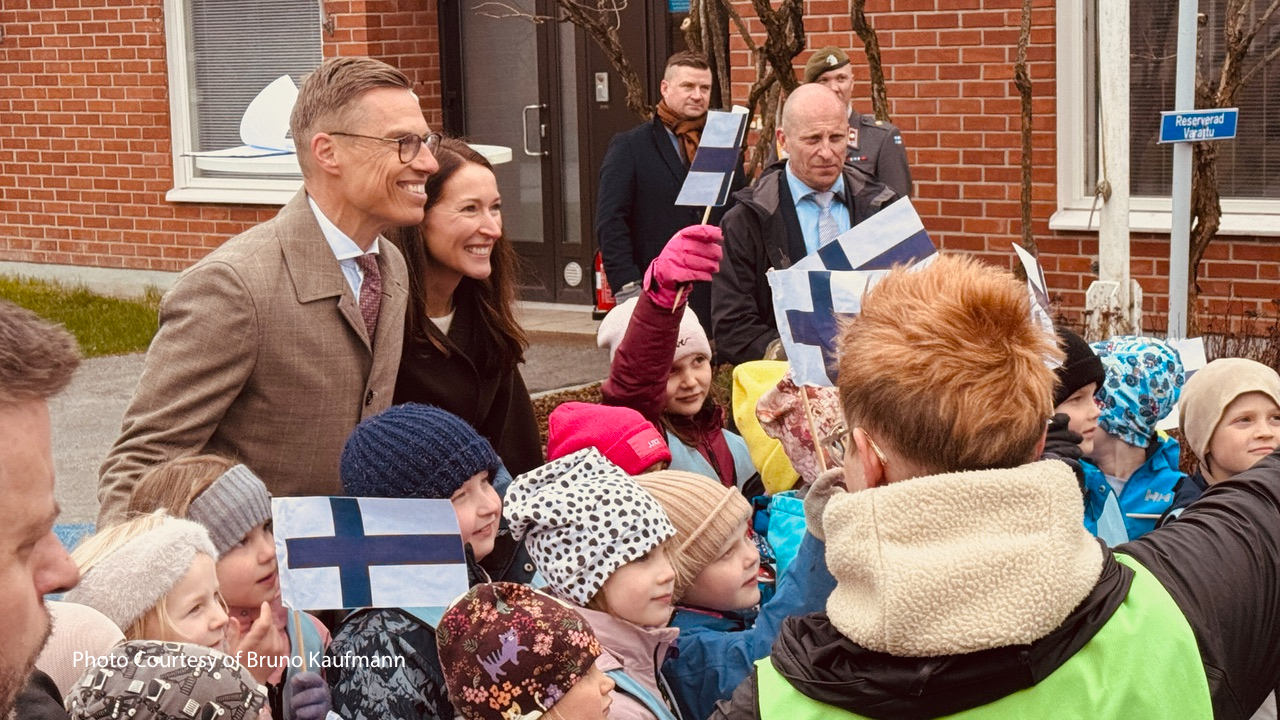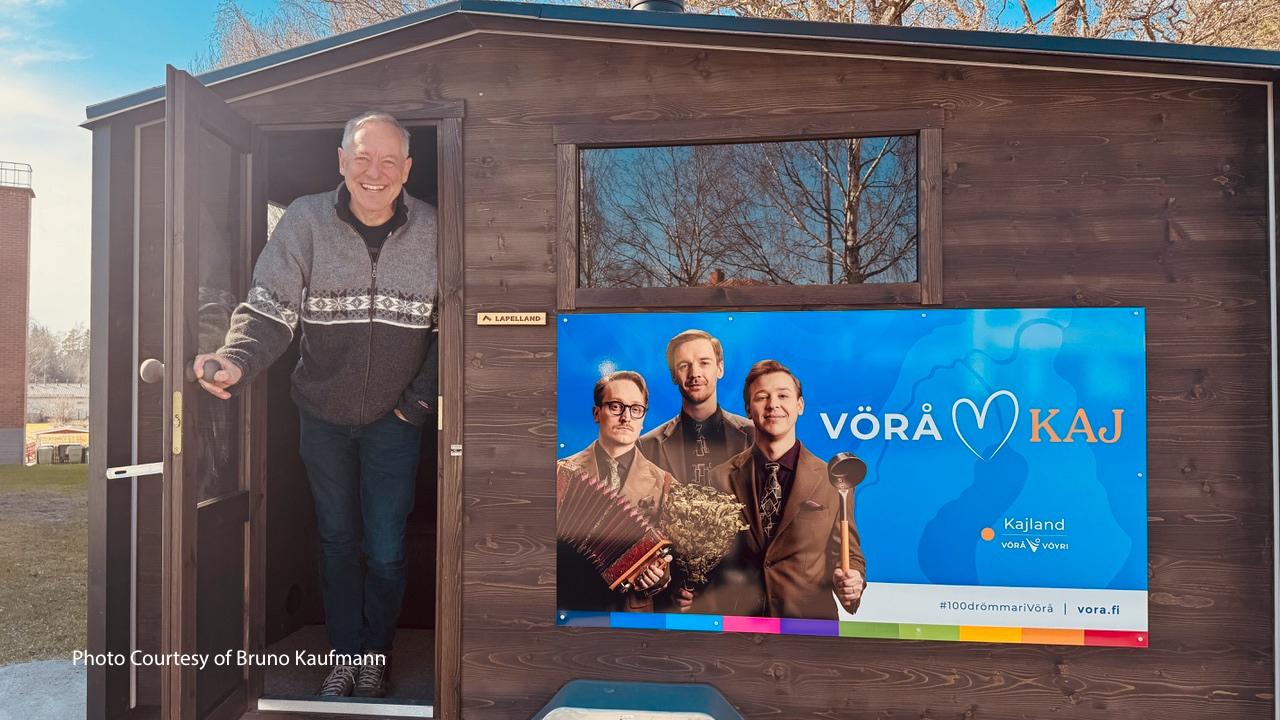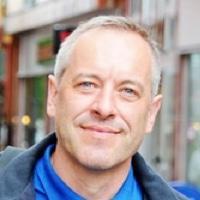A song from Finland's Swedish-speaking and oft-divided region goes to the Eurovision contest
By BRUNO KAUFMANN
Never before in history have so many people longed to sweat.
Social media channels, TV and radio programs, advertising posters, children's parties—even the calendars of heads of state and the nightly dreams of loved ones—are flooded with a single wish: “Just take a sauna.”
And if that's not enough, temporary sauna villages are being built in many places, including in the Swedish capital Stockholm, where they promise things like 'birch tree waving finals', Viking showers and Finnish party fun.
'What's going on?” some people may be wondering, not having followed the fate of Kevin, Axel and Jakob from the small Ostrobothnian village of Vörå.
These three young men, who call their own humorous trio KAJ, have been writing songs in their distinctive dialect for many years about their village, taco nights and wild antics with tractors. They became famous for it, but only on their home turf—the Swedish-speaking, sparsely populated region in north-eastern Finland called Ostrobothnia (located on the eastern side of the Gulf of Bothnia opposite Swedish Västerbotten).
But now the boys will be competing in Eurovision Song Contest in Switzerland, my second home country, more precisely in Basel, one of my hometowns.
They got into the competition after puncturing the Swedish interlude with a song—the first Swedish non-English Eurovision entry since 1999—about different languages, different cultures and the longing for understanding:
Klockon slår, nu ere dags, all bekymber försvinder strax, bästa båoti för kropp och själ, fyra väggar i träpanel…yksi, kaksi, kolme…sauna
In English, those lyrics are:
“The clock is striking, now is the time, all worries will soon disappear, the best boat for body and soul, four walls of wood paneling...yksi, kaksi, kolme...sauna”
At first glance, this may seem like a superficial product of the mighty European music industry. But it is so much more.
“Come and visit our mobile sauna that's going down to Basel,” says Vörås Mayor Jan Finne immediately after shaking hands. He is beaming from ear to ear. And not without reason.
Imagine if some members of the amateur theater group in my Swedish hometown of Arboga were to come up with a song in Iceland's Eurovision selection process—and not only win the island republic's complex 16-part comprehensive pre-selection but also conquer the largest music competition in the world. And imagine if this triumphant tune were a dialect song about what unites the often incompatible communities in our Swedish region, Västra Märdalen, which along with the initials of its three main towns Köping, Arboga and Kungsör is abbreviated to KAK
During my recent days in Vörå, I couldn't help but be surprised: KAJ's home village reminds me a lot of places in Sweden. A few farms here, some modern villas there, and a car scrapyard. But what stands out in Vörå’s case is the language border, which divides the open landscape into a Swedish-speaking and a Finnish-speaking part. To some extent, it is also a border that over a hundred years ago divided Finland into red (Russia-oriented) and white (Sweden-oriented) pieces and was the setting for a brutal civil war. The wounds are still felt today.
With its cheerful spirit and fabulous international success, KAJ is helping to unite all sides. During my recent visit, the village school organized a sing-along with all the pupils, including the visiting Finnish President Alexander Stubb. “For the first time in 57 years, a Finnish president is visiting our village,” Mayor Jan Finne rejoiced. And, out in the cottages, Swedish- and Finnish-speaking neighbors who previously would not talk to each other are surprised that they really do have a common cultural foundation to stand on.
What the unlikely KAJ phenomenon shows is that local unity is not just a matter of bathing in a sauna. It involves cultural policy that allows us to see how much we share, and to find the way forward, for peace and democracy in our unruly and authoritarian era.
“We need to invest much more in culture,” Jan Finne emphasizes when we part after the joint visit to the mobile sauna that is now on its way to Basel—where I will be next week and where Vörå’s boys will be on stage in St.Jakobhalle during the May 17 final about what unites us, the SAUNA!






